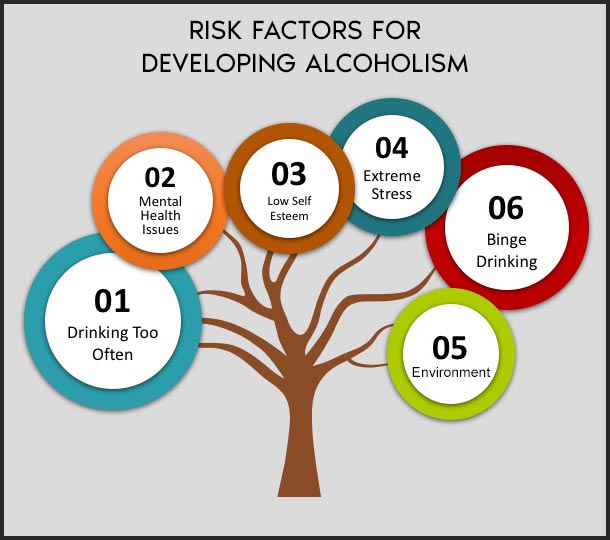The signs and symptoms of alcohol addiction are not always apparent and often a family member or loved one will notice your addiction before you do.
However, if you know what to look for, the signs are always there, even though they may be well hidden.
At Revive, we’re specifically trained to support those people who are ready to take the steps that will lead to alcohol addiction recovery.
The Signs and Symptoms of Alcohol Addiction
If you suspect that your alcohol use is turning into alcohol addiction, there is help out there for you.
Do any of the following questions apply to you?
- Have you recently lost your appetite or experienced nausea and/or vomiting?
- Do you have trouble going to sleep at night if you haven’t had a drink?
- Are you experiencing frequent unexplained headaches, dizziness, or heart palpitations?
- Have other people commented on your irritability, mood swings, or erratic behavior?
These alcohol withdrawal symptoms are considered to be mild to moderate, but severe symptoms can often occur. These can include fear, paranoia, mood swings, elevated mood or mania, sleep disturbances, and even seizures.
What Are the Risk Factors for Developing Alcoholism?
Researchers have not been able to identify a cause for alcoholism, however, there are several factors that may put you at risk of developing alcohol use disorder.
 These can include:
These can include:
- Over 15 drinks per week for men and 12 drinks per week for women
- Incidents of binge drinking (over 5 drinks at a time)
- Mental health issues such as anxiety, depression, or schizophrenia
- You are under extreme stress
- Have low self-esteem or self-confidence issues
- You live in an environment where alcohol is abused
These risk factors don’t necessarily mean you will develop alcohol use disorder, however, these factors do increase your risk.
It’s also important to realize that you may be more at risk of developing alcohol use disorder at specific times of the year.
For example, Christmas is a traditional time for families to get together and overindulge in food, as well as alcohol. If you believe you are at risk of developing a problem around this time, preparing some strategies beforehand may help you to cope.
How to Get Alcohol Addiction Help for Yourself or Your Loved One
Your Doctor or medical professional will be able to diagnose alcohol use disorder or alcoholism. They will need to ask you several questions to ascertain your level of alcohol consumption and the negative side effects this has on your life.
Specifically, they’ll want to know if your drinking has led to any arrests such as driving under the influence of alcohol or assaults. They’ll ask you if you have ever missed work due to alcohol or if you have drunk alcohol while you were at work. Once you have received a diagnosis, you can begin to look at your treatment options.
If you suspect someone you love is addicted to alcohol you may not feel able to approach the subject with them yourself. This is understandable and it is another of the reasons that Revive operates a 24/7 phone call assistance program. We will talk through your situation with your loved one and help you to decide what to do next.
Alcohol Addiction Treatment Options
Treatment for alcohol addiction can have many components, and 12-step programs are no longer your only option. Medications such as naltrexone, acamprosate, and disulfiram can help to alleviate many of the physical cravings associated with alcohol withdrawal.
Medication assistance should be used in conjunction with other treatments and therapies. Detoxification is usually required, and this can be done in a residential facility, or at home with appropriate medical supervision.
Alcohol withdrawal symptoms can include mild to severe cravings for alcohol, nausea, vomiting, diarrhea, uncontrollable shaking, blackouts, and liver disease.
Counseling and support groups are important factors in alcohol addiction treatment as they help to discover the underlying reasons for alcohol consumption and help you to develop coping strategies for difficult times and situations.
As people experiencing alcoholism often neglect their self-care and health, any physical illnesses that occur should be treated alongside your addiction recovery program. Education is also important as people don’t always understand the physical and emotional effects their alcohol use causes.
Other treatments can include aromatherapy, therapeutic massage, acupuncture, and herbal, vitamin, or mineral supplements. A holistic approach has been shown to have a higher success rate than singular treatment programs.
How Revive Detox Can Help with Your Recovery
At Revive we offer a 4:1 staff to patient ratio which allows us to provide a personal, caring, and therapeutic recovery program for all our clients.
Our alcohol addiction treatment programs area tailored specifically to your needs. We offer medication-assisted therapies as needed, nutrition therapy, specialized supplements, as well as emotional and psychological support and guidance.
Our experienced physicians are supported by our clinical staff, who are all RN’s or EMT’s, as we believe that a specialized service should be conducted by a specialized team.
Our high-end, luxurious surroundings in West LA, help to accelerate the recovery process, but we don’t stop there. Our continuation planning and ongoing support are more tools to further a successful recovery process.
How Successful are Alcohol Addiction Rehab Programs?
Alcohol addiction treatment programs do work, and many people successfully maintain sobriety after participating in appropriate programs. Recovery success is dependent on several factors including ongoing support for the patient and other family members.
Contact us today at Revive and learn how we can help you to achieve sobriety and recover fully from alcohol addiction. We’re available 24/7 to answer any immediate questions you have. Don’t wait any longer to begin your new life.Most PPO Health
